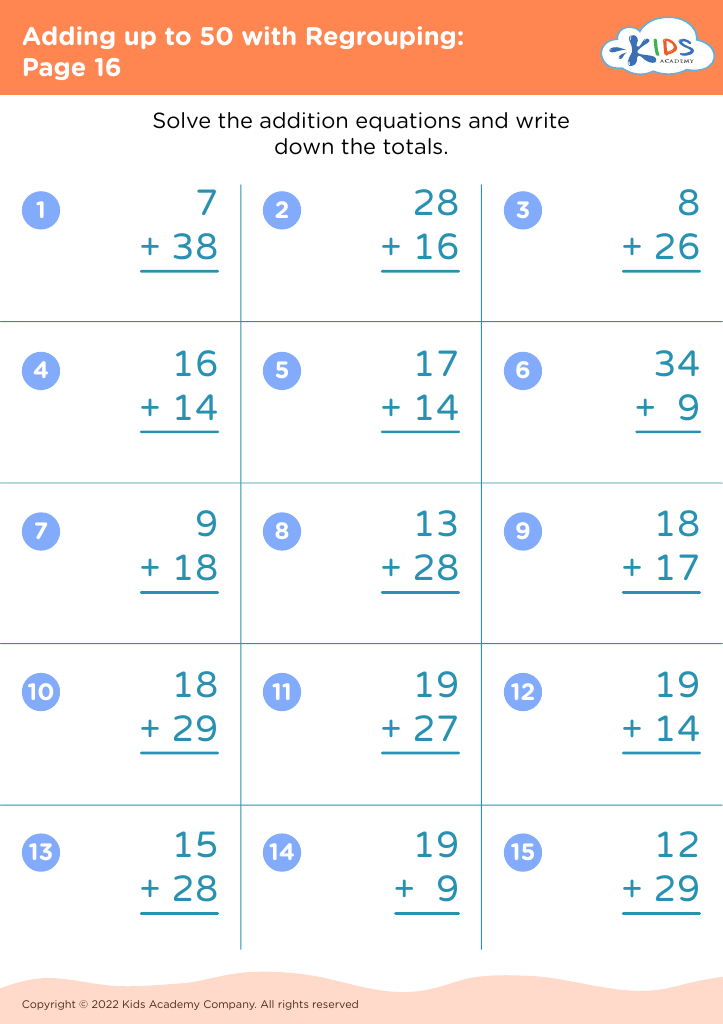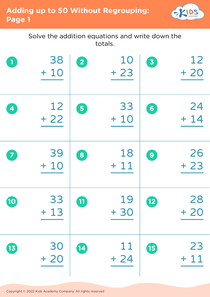Improving math skills Adding up to 50 with Regrouping Worksheets for Ages 3-8
6 filtered results
-
From - To
Boost your child's math abilities with our engaging "Adding up to 50 with Regrouping" worksheets, specially designed for ages 3-8! These fun, colorful activities help young learners master addition while developing crucial problem-solving skills. Through hands-on practice, kids gain confidence in regrouping and adding larger numbers. Perfect for early learners, teachers, and parents, our printable worksheets make learning math enjoyable and effective. Equip your child with the skills they need for future success. Explore now and see the difference focused, interactive practice can make in improving math skills. Let the journey to math excellence begin today!
Improving math skills for children aged 3-8 by focusing on addition up to 50 with regrouping is essential for several reasons. First, early math skills are foundational for more advanced mathematical concepts. Mastering addition with regrouping (carrying over) introduces young learners to the structure of our number system and helps them understand place value, which is critical for future arithmetic operations.
Second, developing these skills at an early age fosters confidence. When children are proficient in basic math, they feel more confident tackling complex problems later. This confidence can translate into a positive attitude towards learning in general, enhancing their overall academic performance.
Third, math skills are used in everyday life. Understanding how to add numbers accurately prepares children for real-world applications, such as handling money, measuring ingredients in a recipe, or even planning travel time. These are essential life skills that ensure children grow into independent and capable adults.
Lastly, early intervention is key. Addressing gaps in understanding math concepts early on makes it easier to correct misunderstandings and reinforces the knowledge before misconceptions become ingrained. Parents and teachers play a crucial role in this by providing a solid foundation, helping with practice, and celebrating progress, thereby setting the stage for lifelong mathematical competence.




















